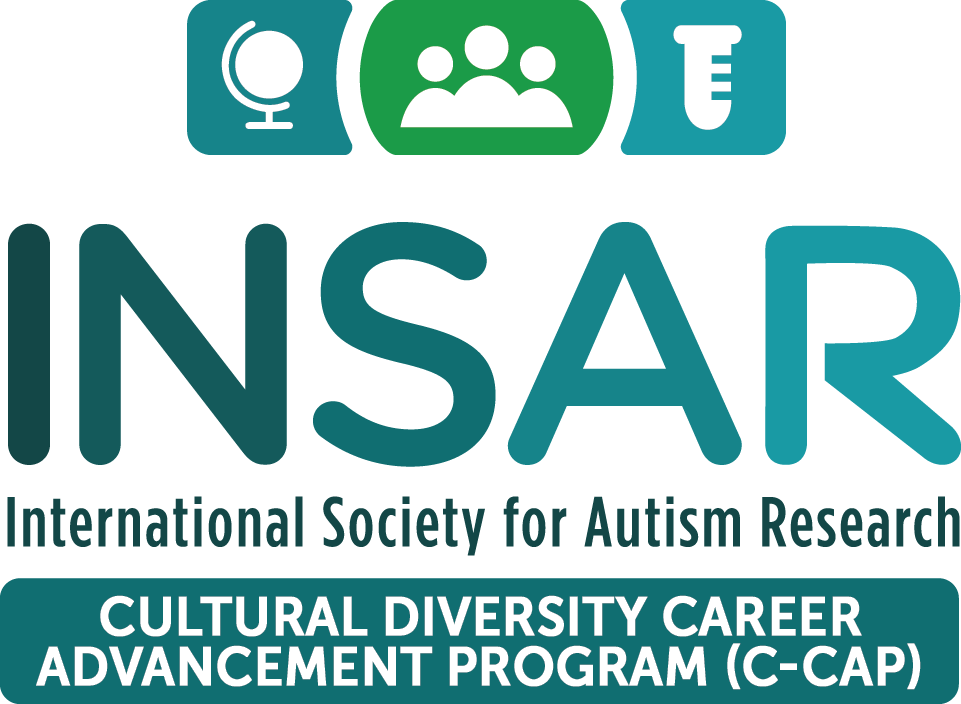Cultural Diversity Career Advancement Program (C-CAP)
The INSAR Cultural Diversity Career Advancement Program (C-CAP) is an initiative whose goal is to increase the amount of autism research from Low/Middle Income Countries (LMIC) and from underrepresented groups in High Income Countries (HIC). The initiative seeks to advance this goal through providing mentorship and ongoing training for researchers at all career levels – early career, mid-career, as well as those yet to fully launch research careers.
Using collaboration and mentorship as a model for growth, the C-CAP Mentorship Initiative will provide a structure for professionals affiliated with INSAR and beyond to engage as Mentors and Mentees. The program launched at the INSAR 2021 Virtual Annual Meeting, the recording of the event launch can be viewed below.
MORE INFORMATION ABOUT C-CAP
What is C-CAP?
C-CAP aims to grow the number and quality of research and researchers primarily in low- and middle-income countries (LMIC) that will include programming and mentoring. Others interested in C-CAP who are not from LMIC can also participate, as space is available. Researchers at any stage of their career (early, mid, late) who believe they can benefit from the program may participate.
What is the C-CAP Mentoring Initiative?
The C-CAP Mentoring Initiative aims to facilitate the career development of individuals primarily from LMIC and historically underrepresented groups from the United States who are interested in a career involving ASD research. The goal of the Mentoring Initiative is to provide mentorship for individuals at all stages of their training/careers, including those not yet in the field.
Who can be a mentor?
We are currently recruiting mentors (from the INSAR membership pool and beyond) involved in ASD research and/or dissemination of research into clinical work, who can help mentees reach their career goals. Mentors can be at any level in their own training/career and the mentoring model can take on a variety of forms (i.e., short-term/long-term one-on-one mentoring, group mentoring, peer mentoring, functional mentoring related to a specific project or skill acquisition). Mentors will indicate the categories in which they are comfortable providing guidance (e.g., research methods, networking, work/life balance, etc.) and receive a short biography of their mentee including a list of their career goals.
How do I become a mentor?
Simply by providing your contact information, you will be put on a list of people to be contacted for either short-term/one-time opportunities as well as opportunities to receive invitations from potential mentees for longer-term mentoring needs.
Why be a mentor?
Mentoring provides clear avenues through which the field will advance. Successful research and clinical application of research requires mentorship. Mentoring and forming relationships with other individuals engaged in ASD research can lead to collaborative projects and further networking opportunities.
C-CAP Mentor Application
Who can be a mentee?
Mentees can include undergraduate students, post-baccalaureate students, graduate students, early career individuals, mid-career individuals, and individuals yet to be launch their career in autism research.
How do I become a mentee?
Simply by providing your contact information, you will be put on a list and you will be contacted for either short-term/one-time, or long-term mentoring opportunities.
C-CAP Mentee Application
Have more questions about the initiative or how to get involved? Find the initiative on INSAR's social media platforms using the hashtag #INSARCCAP, or email the committee at culturaldiversitycommittee@autism-insar.org.

